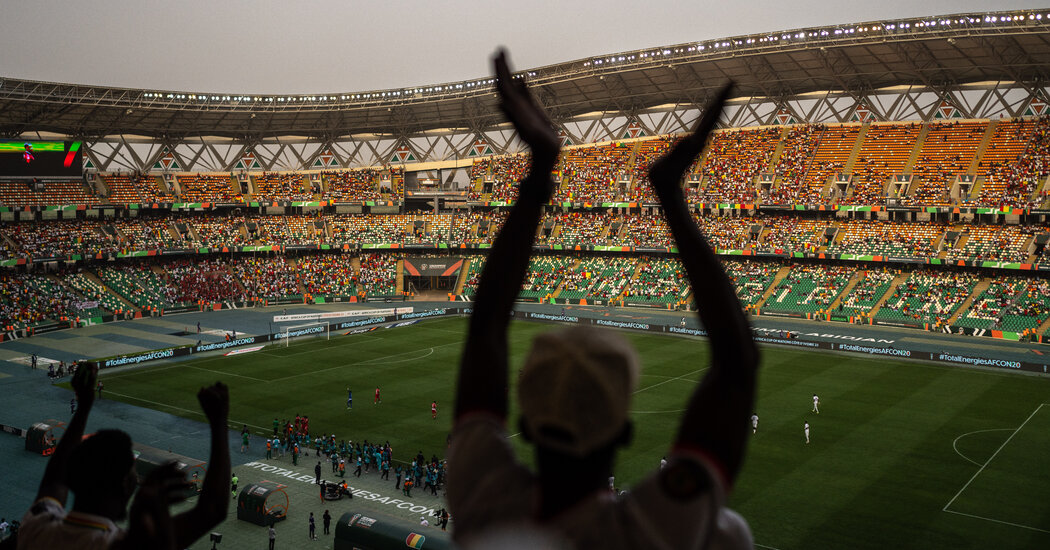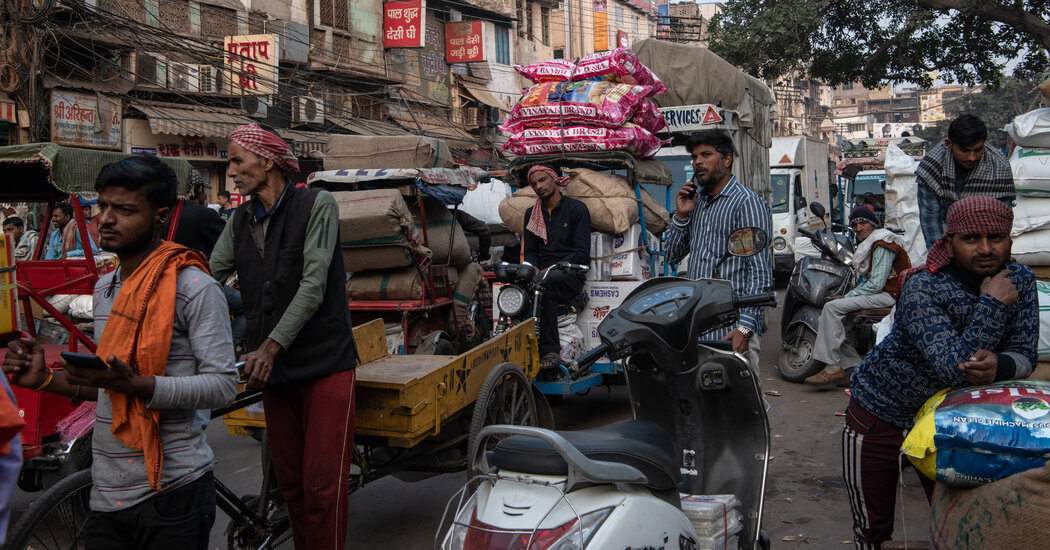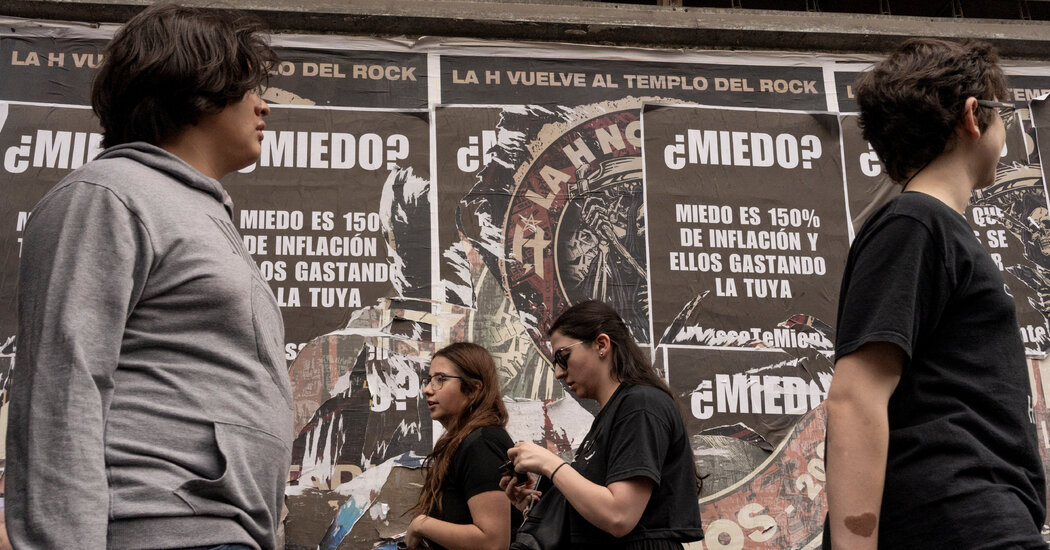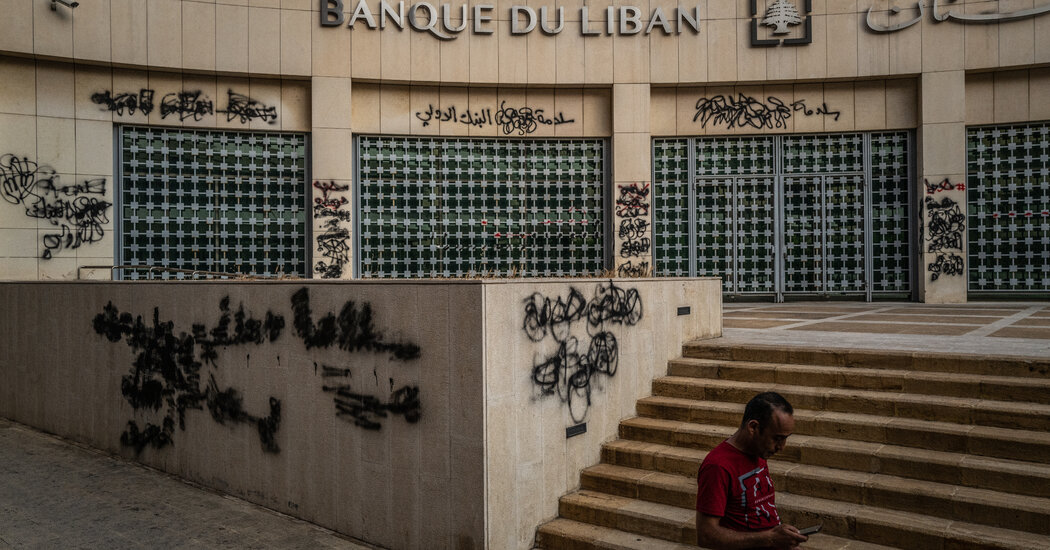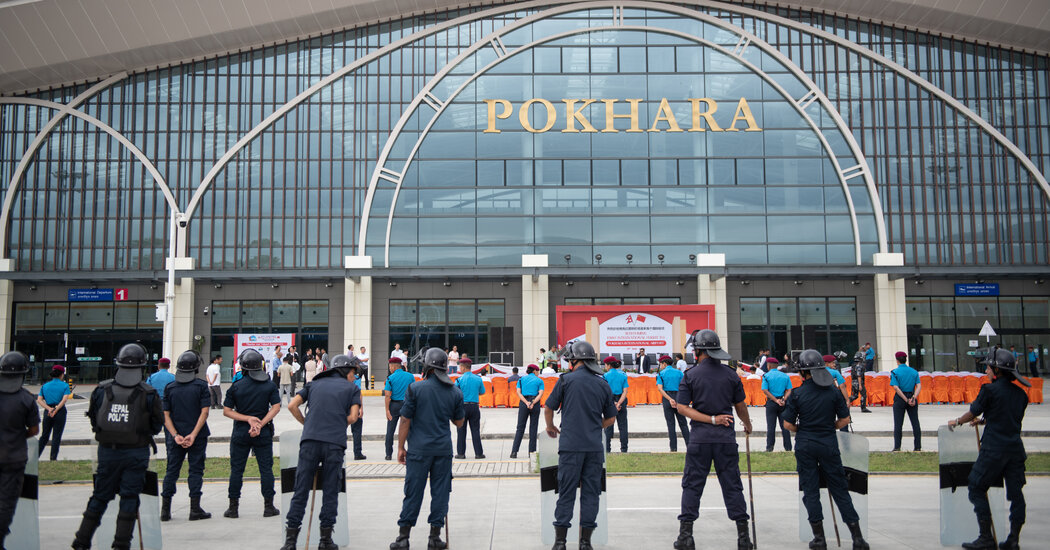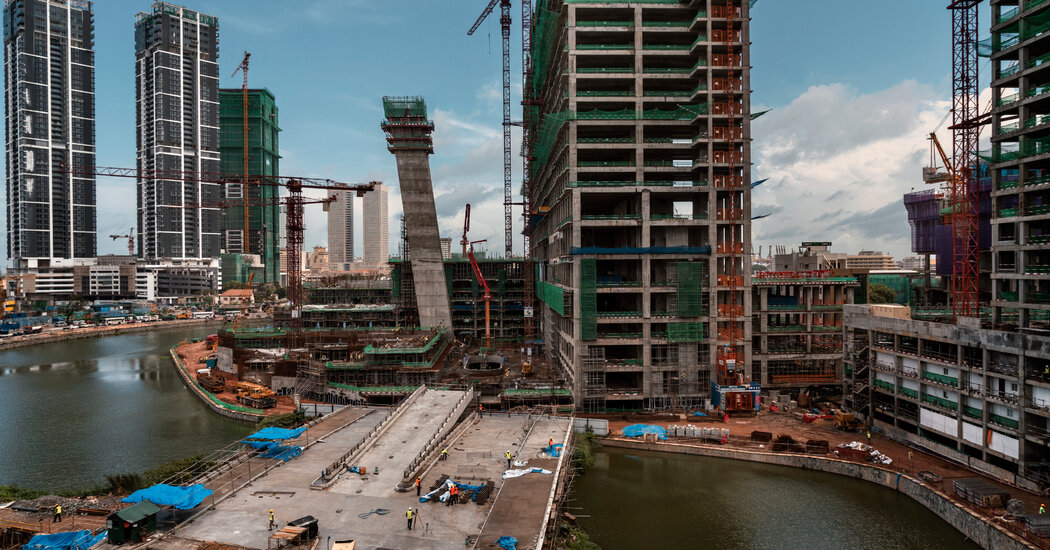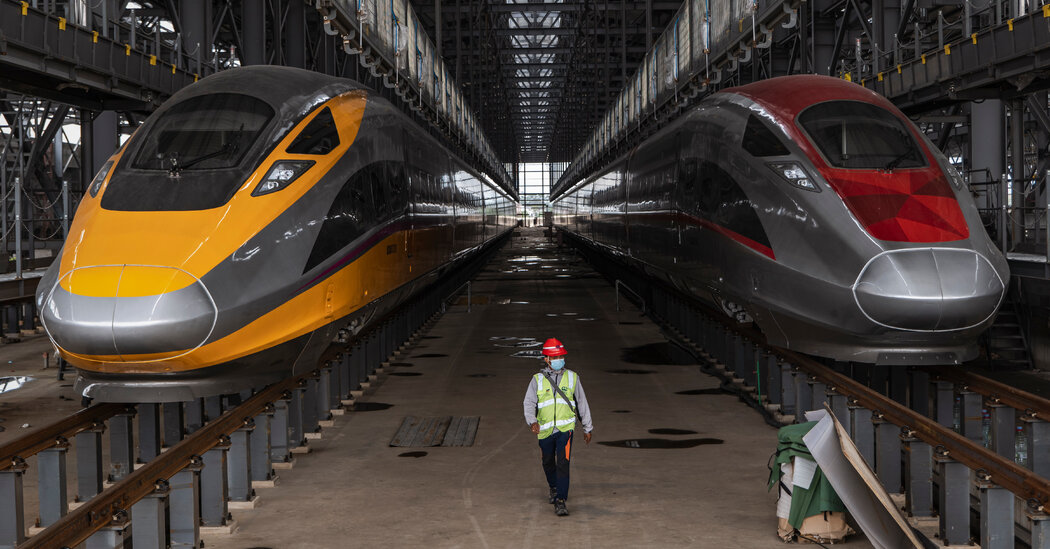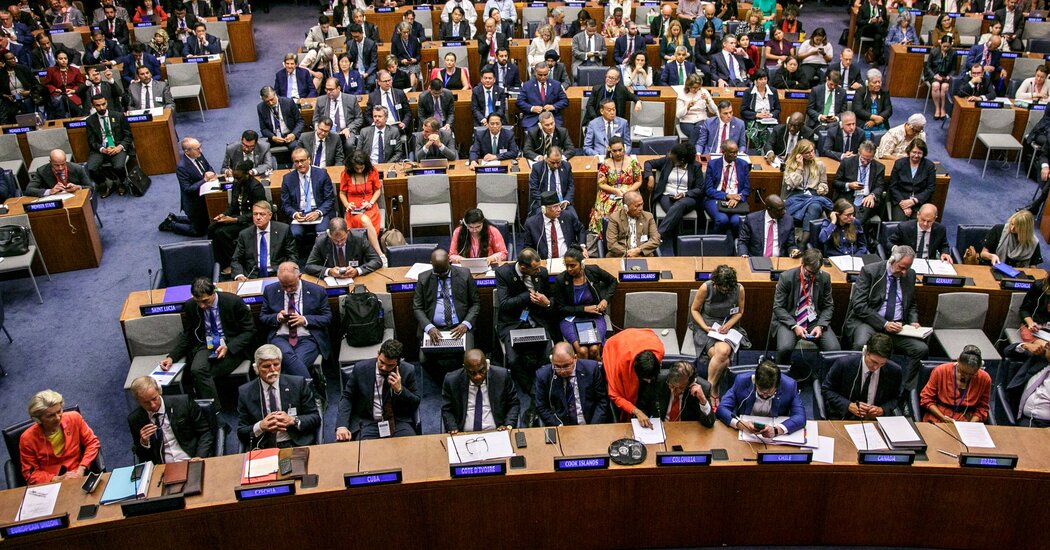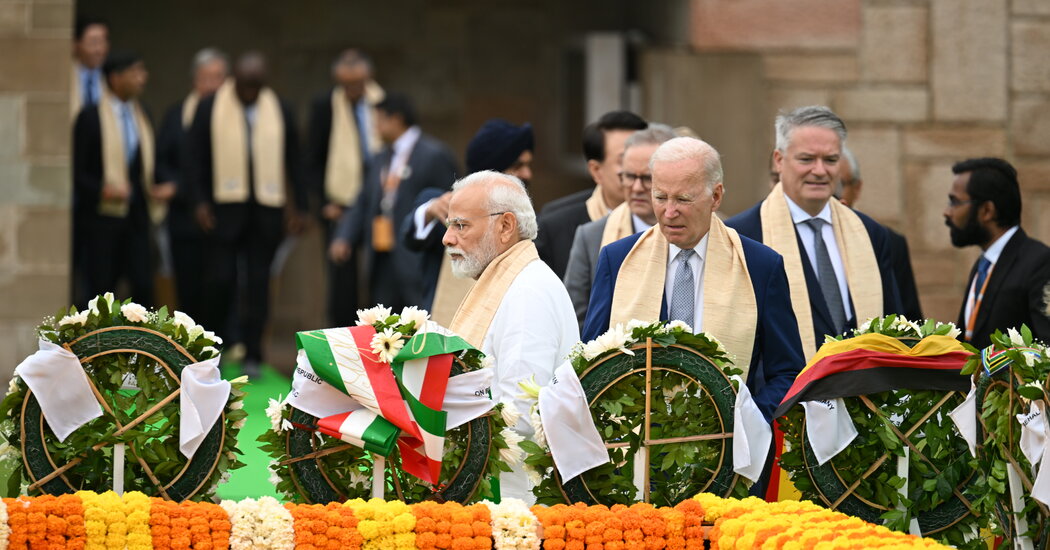The Alassane Ouattara stadium rises like a piece of sculpture from the dusty brown earth north of Ivory Coast’s largest city, its undulating roof and white columns towering over the empty landscape like a spaceship that has dropped onto a uninhabited planet. On Sunday, the three-and-a-half-year-old stadium will host its signature moment, when the national soccer teams of Ivory Coast and Nigeria compete in the final of Africa’s biggest sporting event, in front of tens of thousands of fans chanting and cheering in a stadium financed and built by China.…
Tag: Developing Countries
Indian Stocks Are Booming. Why Is Long-Term Investment Lagging?
India’s economy is booming. Stock prices are through the roof, among the best performing in the world. The government’s investment in airports, bridges and roads, and clean-energy infrastructure is visible almost everywhere. India’s total output, or gross domestic product, is expected to increase 6 percent this year — faster than the United States or China. But there’s a hitch: Investment by Indian companies is not keeping pace. The money that companies put into the future of their businesses, for things like new machines and factories, is stagnant. As a fraction…
Income Inequality Has Been Transformed Globally
Culturally, the age of inequality is still churning: Over just the last six months, we’ve had the song “Rich Men North of Richmond” and Shawn Fain’s leading the United Auto Workers into a triumphant labor war with Detroit’s Big Three while wearing an “Eat the Rich” T-shirt. But at the structural level, our picture of American inequality also seems to be changing. According to some measures, U.S. income inequality hasn’t meaningfully grown over the last decade, the very period in which it has become such a potent cultural and political…
The Debt Problem Is Enormous, and the System for Fixing It Is Broken
Martin Guzman was a college freshman at La Universidad Nacional de La Plata, Argentina, in 2001 when a debt crisis prompted default, riots and a devastating depression. A dazed middle class suffered ruin, as the International Monetary Fund insisted that the government make misery-inducing budget cuts in exchange for a bailout. Watching Argentina unravel inspired Mr. Guzman to switch majors and study economics. Nearly two decades later, when the government was again bankrupt, it was Mr. Guzman as finance minister who negotiated with I.M.F. officials to restructure a $44 billion…
World Bank Warns Record Debt Burdens Haunt Developing Economies
Surging interest rates are saddling the world’s poorest countries with record levels of debt and complicating investments in public health, education and infrastructure initiatives that are key to helping their populations emerge from poverty, the World Bank warned on Wednesday. In its latest report on international debt, the World Bank said that low- and middle-income countries had paid $443.5 billion toward principal and interest in 2022. That is the highest level in history and a 5 percent increase from 2021. The organization projected that total would rise by nearly 40…
Nepal Is Investigating New Airport Made by China
As developing countries weigh the consequences of borrowing heavily from China for major infrastructure projects, anti-corruption officials in Nepal have begun an investigation into a flagship airport financed and built by Chinese state-owned companies. Nepal’s $216 million international airport in Pokhara, the country’s second-biggest city, opened in January. China agreed to provide loans to build the airport more than a decade ago. Nepal tapped China CAMC Engineering, the construction arm of a state-owned conglomerate, Sinomach, as the contractor. The airport has failed to attract any regular international flights, raising concerns…
China Is Lending Billions to Countries in Financial Trouble
After lending $1.3 trillion to developing countries, mainly for big-ticket infrastructure projects, China has shifted its focus to bailing out many of those same countries from piles of debt. The initial loans were mostly part of the Belt and Road Initiative, which Xi Jinping, China’s top leader, started in 2013 to build stronger transportation, communications and political links in more than 150 countries. But now the two main Chinese state banks that provided most of the infrastructure loans have reduced their new lending. Rescue loans climbed to 58 percent of…
What is China’s Belt and Road Initiative and How Is It Changing?
China’s top leader, Xi Jinping, founded the Belt and Road Initiative a decade ago to use the country’s economic might to enlarge its geopolitical heft and counter the influence of the United States and other industrialized democracies. China has since disbursed close to $1 trillion to mostly developing countries, largely in loans, to build power plants, roads, airports, telecommunications networks and other infrastructure. Mr. Xi has used China’s cash and infrastructure expertise to tie together countries across Asia, Africa, Latin America and parts of Eastern and Southern Europe. Belt and…
U.S. and China Aren’t Invited to speak at U.N.’s Climate Ambition Summit
The United Nations’ secretary general, António Guterres, convened a special summit on Wednesday in New York City designed to highlight the efforts of the most ambitious global leaders on climate policy — and to implicitly shame those who are dragging their feet. Mr. Guterres, who has made climate action a centerpiece of his agenda and has called on the world’s largest carbon emitters to rapidly shift away from burning fossil fuels, the main driver of global warming, pledged that only high-level leaders whom he sees as taking climate action seriously…
Can India Challenge China for Leadership of the ‘Global South’?
For more than a decade, China has courted developing countries frustrated with the West. Beijing’s rise from poverty was a source of inspiration. And as it challenged the postwar order, especially with its global focus on development through trade, loans and infrastructure projects, it sent billions of much-needed dollars to poor nations. But now, China is facing competition from another Asian giant in the contest to lead what has come to be called the “global south.” A newly confident India is presenting itself as a different kind of leader for…
